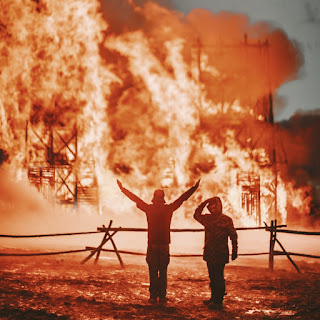There were other tells as well. Too many to share today. Suffice to say, some of my early interests made more sense when I discovered this part of my heritage.
I'm one-quarter Native American, with my most immediate roots connected to the various small bands of people who inhabited the Rio Grande valley. Some were called Coahuiltecan. Some were called Karankawa. Some were called Tejanos in Texas. Some may have been Lipan Apache. My deeper roots are tied to the Quechua. It's conclusive, with some of my DNA markers unique to only them (a tribe that was older but later part of the Inca Empire).
It seems to fit. Under different circumstances, my surname would have been Navejar, which means navigator in Spanish. My paternal ancestors migrated north with Spanish explorers, voluntarily or not, before settling in areas of northeastern Mexico like Nuevo León and southern Texas around Corpus Christi — families intertwined but also on opposing sides during the Texas Revolution.
Growing up with missing links.
I wish I had known more about my Native American heritage while growing up. It may have spared me a few uncomfortable moments over the years, especially from people who either don't believe it or want me to deny it. Our country tends to place too much emphasis on pigment and perception.
I can't tell you how many times I've sat in a meeting with someone claiming the board is too "white," leaving me to wonder if I have the energy to correct them. Or, conversely, finding out someone is surprised that I'm my daughter's father because they thought I was "Mexican" and her skin is too fair.
My children have a complete picture of their heritage. They are primarily German, Welsh, and Native American on my side. They are primarily Scottish, Irish, and Portuguese on my wife's side. They are proud of all of it. But more than that, they are Americans. Most people in the United States are Americans, yet too many people forget it. In my opinion, we would be better off placing any other descriptors after American, e.g. American Native.
Native American Heritage Month
There are some fantastic resources to understand the first tribes better, recognize their accomplishments, and consider the complexities of how indigenous Americans connected with other Americans. The United States maintains a Native American Heritage Month website with links to hundreds of other resources, exhibits, and collections.
Some of my favorites include Bureau of Indian Affairs photos and Flickr exhibits maintained by the National Archives, cinema showcases presented by the Smithsonian, and location histories by the National Parks Service. I also recommend the National Museum of the American Indian. The museum honors the generations of American Indian, Alaska Native, and Native Hawaiian members of the United States Armed Forces beginning with the American Revolution. It captures the complexity of history.
Complexity is a concept we need to reintroduce to the study of history. While the duality of humankind tempts us to choose sides, objective reality doesn't bend so easily. Mostly, history is filled with people doing the best they can in the world that was presented before them. Occasionally, there are one or two who move humankind forward, for better or worse. Maybe we could judge less and empathize more.
Native Americans in my book, 50 States
My heritage influences my writing from time to time. I've written several stories that include Native Americans. In my anthology of short stories, 50 States, there are two that explicitly include indigenous peoples and three with characters who are part Native American.
The story of Chief Math-tope of the Mandan (Numakiki) tribe is featured in All The Wild Horses. It's about a girl who attempts to save a herd of Mustangs in North Dakota by moving them from the Badlands to a reservation. The other, The Qallupilluk, is about a Yupik family that saves a runaway in Alaska.
The other three include Four Fathers (Georgia), Indian Wrestling (Minnesota), and Spinning Wheel (Florida). The reference to their heritage is subtle to nonexistent. Like any of my stories, things like heritage or race are only important to a story if it's important to the characters. You know. It's like real life.
The digital book is on sale everywhere in celebration of Native American Heritage Month, with the best deals at Barnes & Noble and Amazon through November 30. Paperback copies are available from most booksellers, and you can find a shortlist of bookstores with signed copies here. The book is doing well. I'll be sharing an update, along with an exclusive short story, via my quarterly newsletter very soon. Sign up today to make sure you receive it in your mailbox during the first week of December.


















